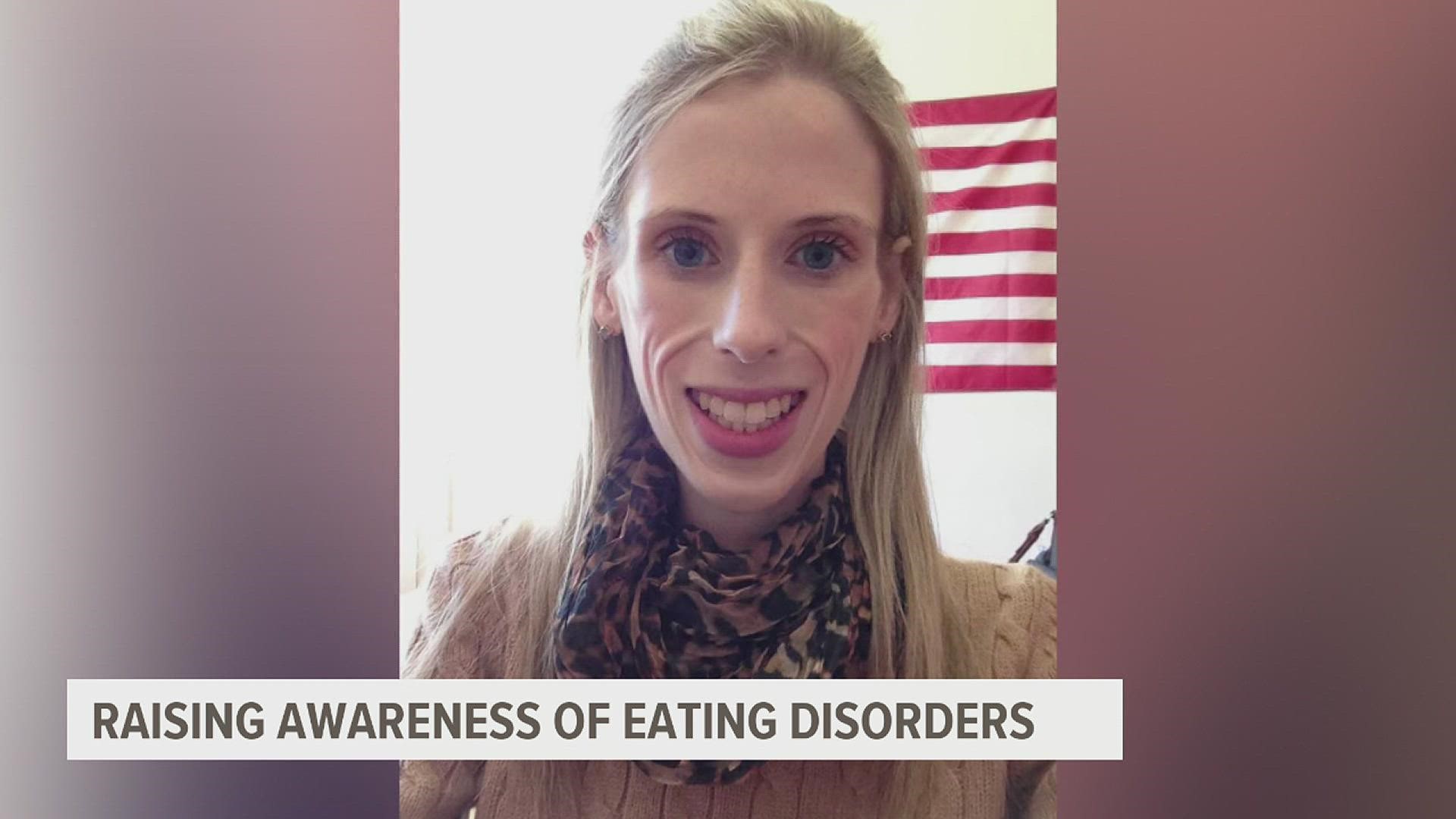YORK, Pa. — Thirty million Americans suffer from eating disorders and more than 10,000 of them die every year.
Martha Watson's daughter Elizabeth was diagnosed with anorexia nervosa when she was just 11-years-old.
"I can think back to a situation when she was 5 and looked in the mirror and had a complete meltdown because she thought she was fat...and she was never fat," Watson said. "We didn't diet, we didn't even own a scale, I never thought twice about what I ate."
Despite that, her little girl quickly became obsessed with the number she saw on the scale.
"A couple physicians told us it was one of the worst cases of anorexia nervosa that they had ever seen," she said. As their only child, she and her husband dedicated their lives to getting Elizabeth the help she needed.
"She was treated all over the country at different times, but every time we had a low, it was lower than the previous low and it was harder to climb back out of it," she said.
For 10 years they fought as a family, until Elizabeth's freshman year of college.
"Sort of at the end of 2015, she had come out of another treatment program and I think she just kind of gave up," she explained. Similar to a cancer patient refusing chemo medication, Elizabeth was exhausted and no longer wanted to fight.
"We had to actually fight to get her into hospice care and we had to love her enough to let her go," Watson said. "It was the right thing and it was her wish."
In 2016, Elizabeth Grace Watson passed away at the age of 21. This is how her mom described her:
After Elizabeth passed away, her mom made it her mission to raise awareness of eating disorders and she partnered with the National Alliance for Eating Disorders.
"We have seen alarming rates of increase in the incidences of eating disorders with the pandemic, with the affects of social media," Watson said.
"Some studies have shown a 100% increase in hospitalizations for adolescents experiencing eating disorders," Johanna Kandel, CEO of the National Alliance for Eating Disorders said.
She also said what people don't often realize is that eating disorders are not a disease of choice or vanity.
"These are biopsychosocial illnesses that are actually brain-based diseases," Kandel explained. "We know on the whole that with early intervention and access to care, individuals have a much higher rate of recovery."
Unfortunately, early intervention requires people knowing and recognizing the signs and symptoms of eating disorders.
"Not everyone has access to information and the information that a lot of people do have is that archaic stereotype of who develops eating disorders and what they look like," Kandel said. "We need to be offering this education and early intervention now."
That's one reason State Representative Jason Ortitay (R-Washington/Allegheny) introduced House Bill 2158. The bill would require schools to annually provide parents and guardians of students in grades 6 to 12 with educational information regarding the disorders.
"Catching it early is something that is very important and can really save the quality of life for a child, save a lot of medical bills, and really get them back on track," Rep. Ortitay said. "Mental health, I feel, has never been more needed, and we've never really put the resources into it that we should have and I feel like we are at that crossroads now where we have to address this."
Although nothing will bring back her daughter, Watson says it's a step in the right direction.
"At least it's getting attention, but we have a long way to go," she said. "What I'm doing is probably how I'm supposed to honor her and extend her life and legacy so I feel like that's important and I'm pretty sure she knows what I'm doing."
The bill right now sits in the Education Committee in the State House. Representative Ortitay said he hopes to work with the Education Chairmen to get the bill on the agenda so they can vote on it. He said he's hopeful it will be signed into law by June.
For more information and symptoms of eating disorders, you can contact the National Alliance for Eating Disorders here.



